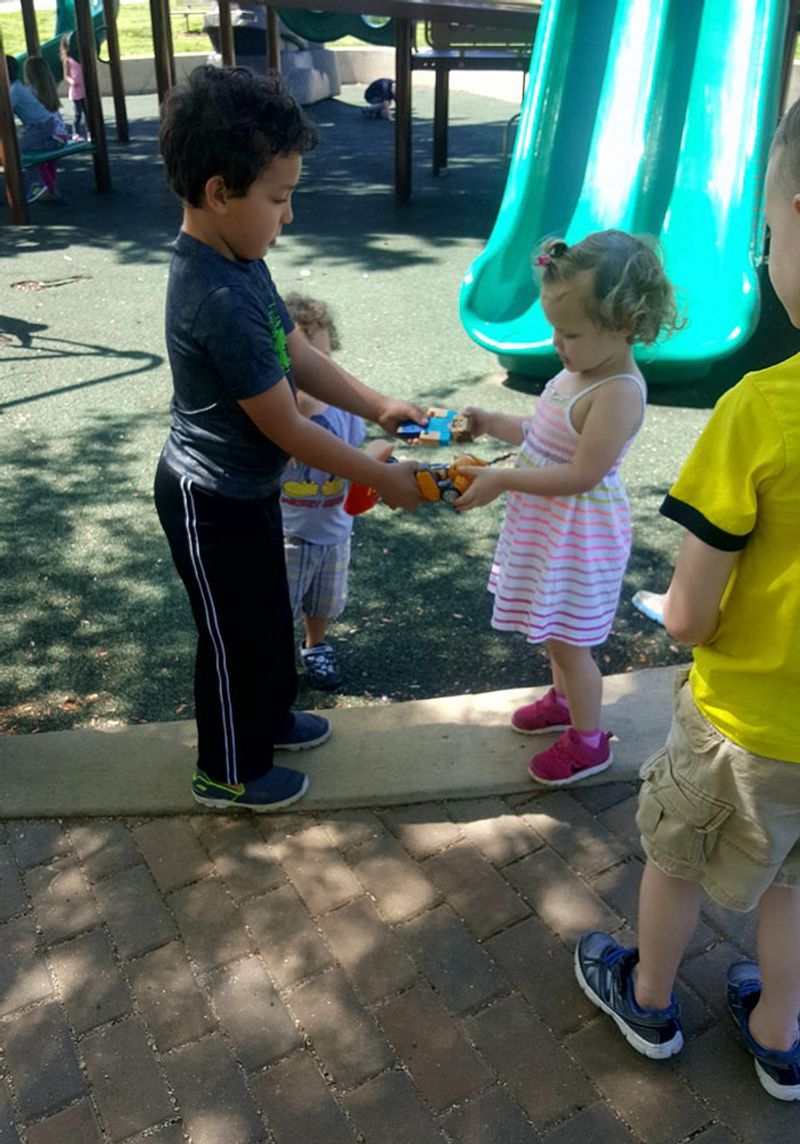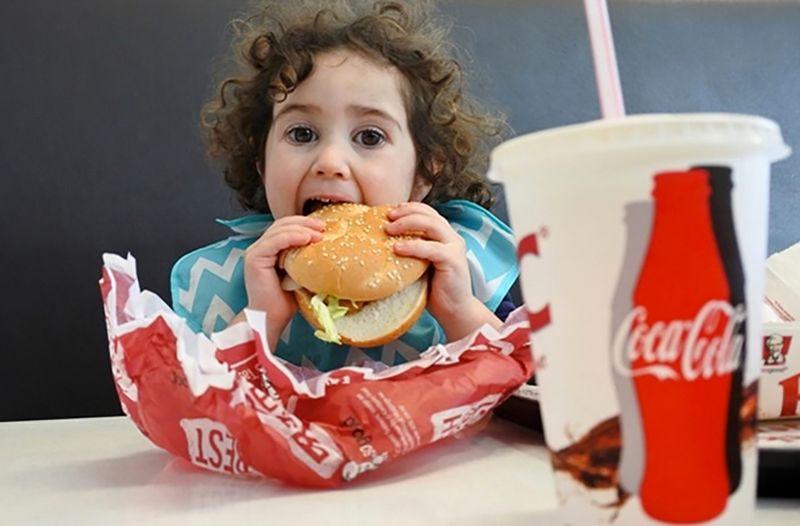In the diverse tapestry of society, contrasting values often highlight disparities in upbringing. Working class families, with their distinct perspectives, possess a unique lens through which they perceive behaviors of privilege. Through their eyes, spoiled children often stand out, displaying traits that might go unnoticed in other social spheres. This article explores eleven specific ways that working class individuals recognize when a child might be exhibiting behaviors associated with being spoiled. From a sense of entitlement to lack of gratitude, these observations offer a glimpse into the cultural values that shape perceptions of childhood behavior.
1. Entitlement in Public Spaces

A bustling marketplace is the perfect backdrop to observe a child’s sense of entitlement. A young child demanding immediate attention from a store clerk often stands out. The impatience seen in their eyes reflects a learned expectation that their needs should be prioritized. This entitlement is a stark contrast to the patience ingrained in working-class values. Such children often equate availability with obligation, forgetting the basic courtesy of waiting their turn. Observing these interactions, one recognizes a disconnect between this child’s world and the collaborative spirit common in working-class communities. It offers insight into what entitlement looks like.
2. Lack of Gratitude

Gratitude is a virtue celebrated across cultures, but its absence is glaringly noticeable. Picture a child receiving an unexpected gift, yet showing little to no appreciation. This lack of gratitude is often linked to a sense of unearned privilege, where gifts are expected rather than cherished. Such behavior contrasts with the modest upbringing of working-class environments, where every gift holds value. The disinterest in the child’s face provides a visual cue of this disconnect. Observing such interactions underscores the importance of gratitude as a marker of respect and awareness in different societal contexts.
3. Disregard for Authority

In a classroom setting, a child’s attitude towards authority figures speaks volumes. A defiant stance against a teacher is particularly telling. This disregard for authority, often seen as audacity, highlights a spoiled demeanor. It reflects a background where limits are seldom set or respected, a stark contrast to working-class values emphasizing respect for educators and elders. Such behaviors signal a household where boundaries are blurred, leading to challenges in structured environments. These confrontations offer a window into the child’s upbringing and the values instilled at home, clashing with the collective respect expected in school.
4. Materialism Over Meaning

In a world driven by consumerism, materialism can overshadow genuine experiences. A child lost amidst a sea of toys, yet appearing overwhelmed rather than delighted, is telling. This focus on possessions rather than meaningful interactions reveals a skewed value system. Working-class families often emphasize experiences over material goods, finding joy in simplicity. Observing a child more attached to items than memories illustrates a disconnect from these values. It shows how abundance can lead to emptiness, suggesting that wealth doesn’t equate to happiness. This distinction is crucial in understanding societal differences in approaching fulfillment.
5. Overly Competitive Behavior

In a community field during a friendly soccer match, competition can turn intense. A child exhibiting frustration over minor losses stands out. This overly competitive behavior often stems from pressure to succeed, overshadowing the fun of participation. Unlike the team spirit encouraged in working-class settings, this mindset focuses on winning at all costs. Such children might prioritize personal achievement over camaraderie, missing the essence of shared experiences in sports. Watching this unfold highlights the contrast in values, where some see games as opportunities for connection, while others see them merely as contests to conquer.
6. Inability to Share

In the lively atmosphere of a playground, sharing becomes a test of social skills. A young child refusing to share toys signals a deeper issue. This inability to share often points to a self-centered attitude, where personal desires trump communal harmony. In working-class narratives, sharing is a fundamental lesson, teaching empathy and cooperation. Watching a child clutch their toys tightly reveals an upbringing where sharing isn’t a priority. This behavior not only disrupts play but also symbolizes a larger disconnect with values promoting community over individualism. It’s a simple act that speaks volumes about familial influences.
7. Demand for Instant Gratification

Patience is a virtue, often overlooked in today’s fast-paced world. A child at a fast food counter, visibly impatient and tapping their foot, exemplifies this demand for instant gratification. In working-class families, patience is often taught through experiences requiring time and effort. This contrast is apparent when a child struggles to wait, expecting immediate results because they are unaccustomed to delays. Such behavior suggests a lifestyle where convenience trumps patience. Observing these moments highlights how differences in upbringing manifest in everyday situations, offering insights into varying parental approaches to teaching the value of patience.
8. Lack of Empathy

Empathy is a cornerstone of human connection, yet its absence is profoundly visible. On a school playground, a child ignoring their crying peer paints a vivid picture. This lack of empathy often signifies indifference bred from privilege, where personal needs overshadow the feelings of others. In working-class contexts, empathy is nurtured as a key social skill, fostering understanding and support. Observing a child’s indifference in such situations reflects a disconnect from these values, showcasing the importance of empathy in building community ties. This behavior offers a glimpse into divergent approaches to emotional intelligence and social responsibility.
9. Excessive Bragging

Bragging can be an off-putting trait, especially among peers. Picture a schoolyard where a child boasts about their latest gadgets, seeking validation through possessions. This excessive bragging often indicates insecurity masked by material wealth, contrasting with humble pride found in working-class environments. Such behavior can alienate peers, as the focus shifts from shared interests to personal accolades. Observing these interactions highlights how materialism can overshadow genuine connections. It’s a reminder that personal worth isn’t measured by possessions, but by the values one holds. This contrast underscores the importance of humility in social settings.
10. Indifference to Hard Work

Hard work is a value deeply rooted in working-class culture, often met with indifference by those unfamiliar with its necessity. Imagine a teenager lounging in a luxurious bedroom, dismissing chores as unimportant. This indifference reveals a life unaccustomed to the responsibilities that define many working-class experiences. Such behavior suggests a disconnect from the realities of labor and its rewards. Observing this highlights the divide between those who view work as a necessity and those who see it as an option. It emphasizes the value of understanding labor’s role in shaping character and community.
11. Lack of Respect for Community Spaces

Community spaces are cherished in working-class communities, yet not all share this respect. A small child littering in a public park, oblivious to the impact, illustrates this lack of respect. It reveals a disconnect from values that emphasize communal responsibility and pride in shared spaces. For working-class individuals, maintaining these areas is a collective duty, reflecting care for the environment. Observing such indifference to cleanliness offers insight into upbringing where individual actions aren’t tied to community well-being. It highlights the importance of instilling respect for shared environments as part of responsible citizenship.

